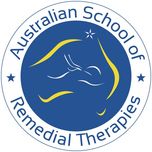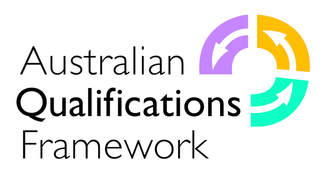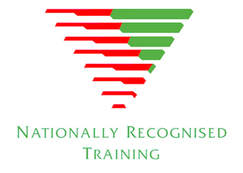HLT52115 Diploma of Traditional Chinese Medicine (TCM) Remedial Massage [An Mo Tui Na]
|
Course Duration
A twelve month Nationally Endorsed Health Training Package program in Traditional Chinese Medicine (TCM) Remedial Massage [An Mo Tui Na] practice in Australia. Course Description This qualification reflects the role of massage therapists who provide therapeutic remedial massages according to the Traditional Chinese Medicine (TCM) remedial massage [An Mo Tui Na] framework. Practitioners may be self-employed as independent practitioners or work in a larger health service. To achieve this qualification, the candidate must have completed at least 200 hours of work as detailed in the Assessment Requirements of units of competency. No licensing, legislative, regulatory or certification requirements apply to this qualification at the time of publication. This course is also suitable for those who may be seeking a Traditional Chinese Medicine holistic approach to health and treatment to enhance their existing Remedial Massage skills. This course is also suitable for those who may be seeking to upgrade their existing Remedial Massage or Traditional Chinese Medicine (TCM) Remedial Massage [An Mo Tui Na] qualifications to meet the current nationally endorsed Health Training Package competency standards. Employment Opportunities Upon successful completion of this qualification, the graduating student will be entitled to practice in Traditional Chinese Medicine (TCM) Remedial Massage [An Mo Tui Na]. Practitioners at this level may supervise other massage therapists. Graduates may find work with other allied health professionals in an existing clinical setting, establish their own clinic or find work within the framework of other health care environments such as hospitals, nursing homes, aged care facilities, medical centres, physiotherapy and chiropractic clinics, community health centres, spa facilities and health resorts, alternative health care centres such as homeopathic clinics and sports medicine centres. Further Pathways Upon successful completion of this qualification, the graduating student will be able to apply for advanced standing into the:
Graduates are recognised by the following professional complementary medicine associations for accredited membership. Graduates who maintain accredited membership are eligible for provider status with relevant private health insurers (health funds). Australian Natural Therapists Association (ANTA) http://www.anta.com.au Association of Massage Therapists (AMT) http://www.amt.org.au/ Australian Traditional Medicine Society (ATMS) http://www.atms.com.au/ Australian Association of Massage Therapists (AAMT) http://www.aamt.com.au Entry Requirements Applicants must be over 18 years of age and have completed the higher school certificate or equivalent and have read and understood the terms and conditions of The Australian School of Remedial Therapies Participant Handbook. Successful completion of the HLT42015 Certificate IV in Massage Therapy or HLT40312 Certificate IV in Massage Therapy Practice would be desirable. Recognition of Prior Learning Students with prior learning, studies, work and or life experience may qualify for recognition or credits (RPL) for modules and or units within this qualification. Please enquire with the Australian School of Remedial Therapies administration prior to course commencement. Attendance Requirements Face-to-face lectures Total 500 Hours. Research and assignment tasks Total 500 Hours Supervised clinical practice Total 200 Hours Minimum attendance 90% Face to face training is conducted on Fridays and students can attend monthly supervised clinical training sessions which are usually held on Fridays, Saturdays and Sundays. |
Course Costs
Where applicable students are responsible for additional costs for towels, transport and or protective clothing. Registration Fee:
18A Margaret Street Strathfield. Course Intake 2024 Day Class: Friday 9th Feb. 2024 Enquiries If you would like to find out more about the details of this course, the class facility or to address your personal questions, please email [email protected] or ring 0297632388 or text 0416286899 to arrange an appointment. Course Stucture
This qualification consists of 20 units. 14 core units and 6 elective units, consisting of at least 1 unit from the Business Management group and up to 5 units from the Other Electives. The elective units have been selected by the Australian School of Remedial Therapies after feedback from industry consultation. Students with prior learning, studies, work and or life experience may qualify for recognition or credits (RPL) for modules and or units within this qualification. Core Units CHCCOM006 Establish and manage client relationships CHCDIV001 Work with diverse people CHCLEG003 Manage legal and ethical compliance CHCPRP003 Reflect on and improve own professional practice CHCPRP005 Engage with health professionals and the health system HLTAAP003 Analyse and respond to client health information HLTAID003 Provide first aid HLTINF004 Manage the prevention and control of infection HLTTCM001 Develop Traditional Chinese Medicine (TCM) remedial massage practice HLTTCM002 Perform Traditional Chinese Medicine (TCM) remedial massage health assessments HLTTCM003 Provide Traditional Chinese Medicine (TCM) remedial massage treatments HLTTCM004 Adapt Traditional Chinese Medicine (TCM) remedial massage practice to meet specific needs HLTTCM005 Monitor and evaluate Traditional Chinese Medicine (TCM) remedial massage treatments HLTWHS004 Manage work health and safety Elective Units Business Management BSBSMB404 Undertake small business planning Other Electives CHCCCS001 Address the needs of people with chronic disease HLTREF002 Provide reflexology for relaxation HLTAAP002 Confirm physical health status SISFFIT526A Deliver prescribed exercise to clients with musculoskeletal conditions SISSSTC301A Instruct strength and conditioning techniques Assessments Units may be assessed using a combination of written work, submitted assignments and research, tests, quizzes, written and practical examinations, practical application, class participation and attendance, scenarios and participation in clinical practice programs. |
Registered Training Organisation (RTO) 91113
Contact Us
Campus: 18A Margaret Street Strathfield NSW 2135
Correspondence: PO Box 118, Strathfield NSW 2135
Phone: 02 9763 2388
SMS: 0416 286 899
Email: [email protected]
Correspondence: PO Box 118, Strathfield NSW 2135
Phone: 02 9763 2388
SMS: 0416 286 899
Email: [email protected]


